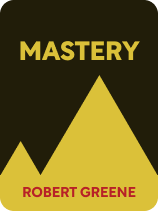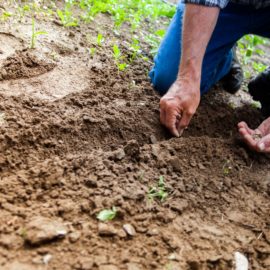

This article is an excerpt from the Shortform book guide to "Mastery" by Robert Greene. Shortform has the world's best summaries and analyses of books you should be reading.
Like this article? Sign up for a free trial here.
Do you dread doing the dishes? Do everyday tasks seem small and insignificant?
With a shift in attitude, you can find significance and even joy in life’s smallest moments. In Mastery, George Leonard says the path of the master is a life lived in disciplined dedication to your chosen skill, craft, or art. The most direct way to get on this path is to master the mundane aspects of your day.
Keep reading for Leonard’s insights into how to enjoy everyday life.
Enjoy Everyday Life by Mastering It
Everyday life, Leonard says, is full of opportunities to practice as the master would. The only reason we don’t approach these activities as such—from folding the laundry to maintaining your car or relating to your loved ones—is because we’ve been conditioned to seek the end goal. According to Leonard, we live in a “getting things done” culture, with an emphasis on done. We do things, not for their own sakes, but to get them over with. But, we can learn how to enjoy everyday life by rebelling against this mindset.
(Shortform note: In contrast to Leonard’s juxtaposition of a lifestyle of present, masterful action with one focused on results, David Allen suggests in Getting Things Done that being on top of your to-do list actually enhances your presence and focus. When you know you have control of all your tasks and responsibilities, you can approach each with full focus because there’s nothing else nagging at you. Being productive and getting results, then, isn’t all bad and can even complement the master’s approach to life.)
According to Leonard, if you want to live a rich and fulfilling life, the “getting things done” mindset is the wrong way to go about things. He says that we should instead seek to cultivate the master’s attitude in all of these mundane, intermittent moments of life. To do this, take the following three steps:
1) Start from a relaxed presence. Before beginning to, say, fold the laundry, take a moment to compose yourself for the task ahead.
2) Fully immerse yourself in the activity at hand. In other words, maintain that presence from which you started in each moment of the activity. Pick up and fold each new article of clothing with a calm, diligent focus on that task, striving for excellence and elegance in each minute aspect of the activity.
3) Forget about the end goal. The master practices not to achieve a result but for the sake of the activity itself. Paradoxically, Leonard says that this often improves the result, since you’ll be more dedicated to patient, quality performance of the activity.
| Life as a Learning Journey In The Art of Learning, Waitzkin discusses a similar set of principles that concerns lifelong learning—which we might consider to be a different approach to the same idea that Leonard discusses above. That is, approaching daily life with the master’s attitude essentially means that you’re always present and learning throughout your life. Like Leonard, Waitzkin offers three principles: Strive for presence in all things. Living from a state of deep, focused calm enables you to better navigate and respond to all of life’s difficulties and challenges. Learn through trial and error—mistakes teach you what to improve and how. Focus on the process, valuing your overarching experience of learning over any results you may achieve. |
Leonard says you can cultivate the master’s attitude in all the mundane aspects of life—everything from driving to work to cooking dinner, cleaning your house, or tucking your kids into bed each night. Approach these activities with presence and diligence, and you’ll be well on the way to living as a master would in every aspect of your life.
Exercise: Get a Feel for the Master’s Attitude
In this short exercise, practice approaching some mundane aspect of your life as a master would approach his craft.
- To begin, think back to Leonard’s argument that you can treat even the most mundane activities as opportunities to practice mastery. What part of your life could this apply to? (For instance, making your bed or getting ready for work.)
- Next, recall that Leonard recommends you begin practicing as a master would—from a relaxed state of mind and body. List a few things you could do to get into that state before you begin your task?
- Having found the appropriate state to begin from, immerse yourself in the task at hand. As you perform this activity, what steps could you take to focus on the nuances of the task rather than the end result? For example, if you’re making your bed, you might pay close attention to the textures of the bed linens or concentrate on the quality and precision of your hospital corners.
- Now that you’ve practiced a simple activity as a master would, reflect on what you experienced. Briefly, what did this practice clarify for you about how a master approaches his skill and his life at large?

———End of Preview———
Like what you just read? Read the rest of the world's best book summary and analysis of Robert Greene's "Mastery" at Shortform.
Here's what you'll find in our full Mastery summary:
- How to walk the path of the master by being disciplined in your skill or art
- Why mastery isn't an end goal, but rather a continual process of learning
- Why the master's path is the only guaranteed way to live a fulfilling life






